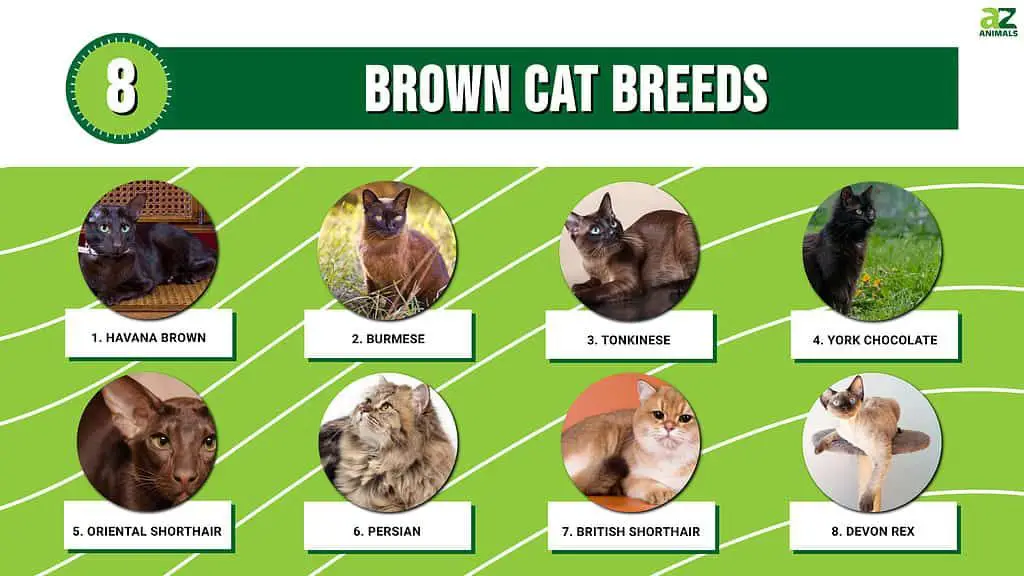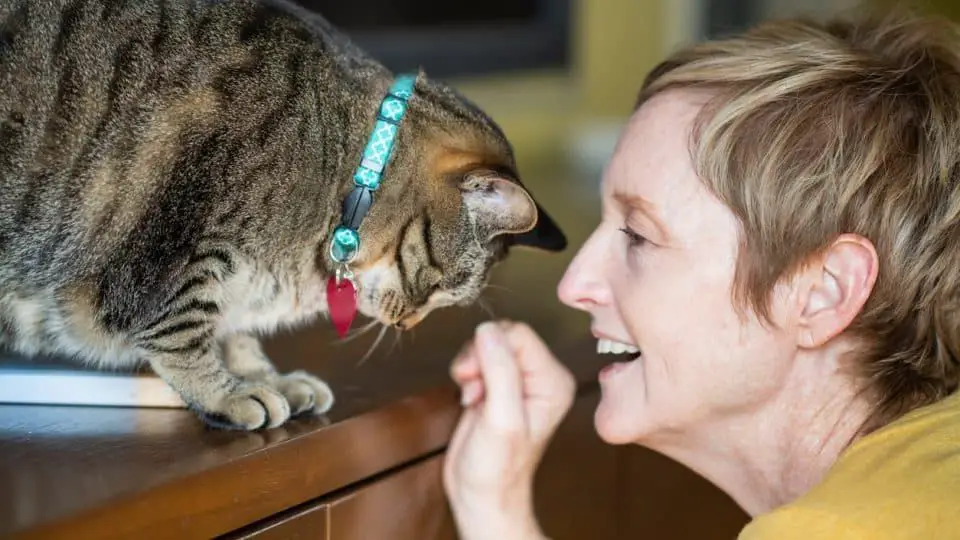Do Cats Recognize Their Own Name?
There is evidence to suggest that cats can distinguish their name from other words. A 2019 study published in Scientific Reports tested domestic cats’ ability to discriminate their own names from other words. The researchers found that cats responded more frequently to their own names compared to other words, indicating they were able to recognize their names. The cats showed similar discrimination abilities to dogs in previous name recognition studies.
Additional studies have also demonstrated cats’ capacity to learn their names when associated with rewards. A study published in Applied Animal Behaviour Science trained cats to respond to their names when paired with food rewards. With repeated training, the cats learned to differentiate their names from other words and respond accordingly.
While scientific studies provide controlled evidence, many cat owners also have anecdotal experiences of their cats responding when called by name. Cats who consistently react to their name, come when called, or look towards their owner suggest they recognize their name. However, cats may selectively respond to their names even when they distinguish the word, as they are independent animals.
How Cats’ Hearing Affects Name Recognition

Cats have excellent hearing abilities compared to humans, capable of detecting frequencies up to 64kHz compared to a human’s 20kHz range. However, cats struggle to detect lower frequencies and tones in human speech below the 200-500 Hz range1. This means cats can hear high-pitched sounds like birds chirping or rodents squeaking very well, but have a harder time distinguishing the lower tones and frequencies of human words and names.
As a result, cats are more likely to recognize the higher frequency sounds at the end of their names rather than the lower beginning sounds. For example, a name like “Lancelot” that ends on a low-frequency sound may be harder for a cat to recognize versus a name like “Bella” that ends on a higher note1. Cats rely more on interpreting intonation, volume, and emotion in human speech rather than comprehending exact words and vocabulary.
Therefore, while cats can learn to respond to their names, they rely more on associating the name with rewards and interpreting vocal tone rather than recognizing the precise word. Their exceptional high-frequency hearing allows cats to detect their name being called, but challenges with lower frequencies make it difficult for cats to phonically distinguish specific names and words in human speech.
Cats Associate Names with Rewards

Cats learn to recognize their names because it becomes associated with rewards. When a cat hears its name called, it often precedes being given food, petting, praise, or other positive reinforcements that cats enjoy. This consistent pairing conditions the cat to recognize and respond when their name is said.
Pet owners can leverage this tendency by always saying the cat’s name right before presenting a reward. For example, saying “Jack, here’s your dinner!” or “Good boy, Jack!” while petting them. With time and consistency, the cat learns that hearing “Jack” means something good is about to happen.
According to experts, the best way to teach a cat its name is to say it immediately before giving food or treats.[1] This conditions the cat to associate its name with the pleasurable experience of eating. The same technique can be used for petting, praise, toys, or anything else the cat enjoys.
Through positive reinforcement like this, cats learn names have meaning and pay attention when theirs is called. Just like people, they respond better to positive motivators than punishment or scolding.
Name Recognition Varies by Cat

A cat’s ability to recognize its name can vary significantly depending on the breed. This is due to differences in intellect and trainability between breeds. For example, breeds like the Abyssinian and Siamese are known to be highly intelligent and responsive to training. They tend to learn names more readily than less trainable breeds like Persians or Ragdolls.
Early socialization and habituation to a cat’s name also plays a key role. Kittens that are frequently called by name from a young age and rewarded with treats or affection will learn to associate their names with positive reinforcement. Adult rescue cats or cats adopted later in life may take more time and effort to learn their new name.
The bond and relationship between owner and cat can also impact name recognition. Cats that have a close, interactive relationship with their owner where the name is used frequently in a consistent, engaging way will be more likely to respond. Shy, aloof, or feral cats may struggle to make the name association regardless of breed.
According to a study from Rover, active, social breeds like Bengals, Siamese, and Abyssinians tend to have the highest name recognition, while more independent breeds like Persians and Birmans score lower.
Ways to Test If Your Cat Knows Its Name
There are a few simple ways you can test whether your cat actually recognizes its own name or just reacts to any sound:

- Call your cat’s name versus other random words and see if it responds differently. Use its name in a normal tone and volume, not accompanied by other sounds or actions.
- Say your cat’s name in different tones – angry, sweet, gentle, urgent – and note if its reaction changes based on your tone.
- Call your cat when it is in another room or out of sight and see if it comes when its name is called. This helps rule out random meowing or just reacting to any noise. 1
Pay attention to ear movements, head turning, and looking in your direction, as these are signs your cat may recognize its name. A cat responding to its name versus random words is a good indication it knows its own name.
Tips for Teaching Your Cat Its Name
The best way to teach a cat its name is to start when they are young and use repetition and rewards. According to Zoetis Petcare, cats respond best to training when they are kittens under 1 year old. Call the kitten by name frequently and always use a happy, positive tone of voice. When the kitten responds to its name, provide a treat or other reward. This positive reinforcement will help the kitten learn that coming when called leads to good things.
Continue rewarding the kitten every time it comes when you call its name. Be very consistent with using the name only positively at first, so the kitten does not learn to associate it with negative experiences like getting nails trimmed. According to the ASPCA, short 1-2 syllable names are easiest for cats to learn. Avoid names that sound like common words you use regularly. With regular practice and rewards, kittens can learn their names within the first few months. Adult cats can learn too, but it takes more time and patience.
Why It Matters If Your Cat Knows Its Name
Teaching your cat its name can strengthen the bond between the two of you. Cats that recognize their names tend to be more responsive when called, which enhances communication and interaction with their owners (source). A cat that comes when called feels more connected to its owner.
Knowing its name also makes a cat more receptive to commands like “come” or “stay,” which is important for recall and safety. An owner can more easily get their cat’s attention or prevent dangerous behaviors if the cat is conditioned to respond to its name (source). This allows the owner to maintain better supervision and protect the cat from harm.
So while a cat may not care that you use its name, teaching it to recognize its name provides practical benefits. The name becomes a tool for enhancing your relationship and communicating important cues. A cat that knows its name tends to be more attentive, connected, and responsive to its owner’s guidance.
Signs Your Cat Knows Its Name
There are a few telltale signs that indicate your cat recognizes its own name. These include:
– Perking up its ears or turning to look at you when you call its name. Cats have excellent hearing, so a cat that knows its name will become alert and attentive when it hears you say it. According to The Spruce Pets, this is one of the clearest signs a cat associates its name with you calling it.
– Coming over to you or approaching when you call its name. A cat that recognizes its name will often come when called or at least walk in your direction. This shows your cat connects its name with you summoning it.
– Responding differently to its name versus other words or sounds. If your cat reacts to its name but ignores other words, that’s a sign it knows its name stands out. Cats that don’t know their names will respond the same way to any word you speak, according to PetMD.
So if your cat perks up, approaches you, or responds distinctly when you say its name, those are good indications it recognizes its own name.
Troubleshooting Name Recognition Issues
If your cat is having trouble learning its name, there are a few things you can try:
Be consistent with the name and avoid using nicknames. Stick to the exact name you want your cat to learn every time you call it. Using multiple names or nicknames will only confuse your cat.
Eliminate competing sounds when practicing name recognition. Turn off the TV and radio so your cat can focus solely on your voice calling its name. Too many background noises make it difficult for your cat to pick out its name.
Check for any hearing issues your cat may have. Senior cats or cats with ear infections may have difficulty hearing properly. Consult your vet if you suspect your cat is having trouble hearing. They can check for medical issues impeding name recognition.
With consistency, a quiet training environment, and ruled out health issues, your cat should pick up on recognizing its name. Don’t give up! It may take hundreds of repetitions for the name association to stick.
The Takeaway: Cats Can Learn Their Names
The research shows that with time, patience and positive reinforcement, cats can learn to recognize their names. According to a 2019 study published in Scientific Reports, cats can distinguish their owner’s voice and recognize when their name is being called (https://www.science.org/content/article/does-your-cat-know-its-name-here-s-how-find-out). This ability likely develops as owners frequently repeat the cat’s name in a positive tone when feeding, petting or playing with them.
Though some cats will respond to their names more readily than others, the ability to recognize their name is an important part of the bonding process and safety for cats. Coming when called can keep indoor cats from getting lost or outdoor cats from dangers. Owners can test their cat’s name recognition and work to improve it by calling their name, rewarding with treats, and associating the name with positive interactions.
